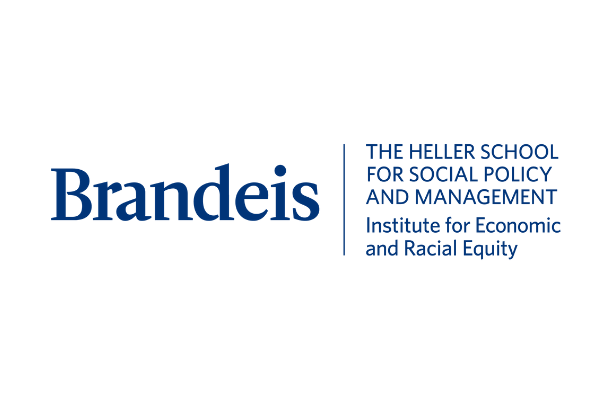As community-engaged researchers, my Empowerment Economics team and I are always learning about the delicate dance of power. The COVID-19 pandemic and waves of anti-immigrant, anti-Black and anti-Asian violence over the past two+ years revealed disparities that have cemented our commitment to research and evaluation methods that actively confront and shift unequal racial and social power relations. I offer a few reflections from co-creation work to spark dialogue with philanthropic, research and community leaders.
Setting the stage: Wrestle with history.
Foundations, designed primarily by wealthy white male industrialists and scientists, place the burden of proof of effectiveness on grantees. Evaluators, charged with creating metrics of proof and often coming from academia, tend towards research methods oriented around “white logic,” a lens that excludes an understanding of the significant impact of racial societal stratification. Co-creation starts by recognizing that the institutions of academia and philanthropy built, maintain and, in many cases, continue to exacerbate the concentration of white power and resources in the United States and beyond. Approaching potential collaborators with humility and a well-thought-out perspective on your own positionality in a partnership can set the stage for equitable engagement.
Getting to work: Dismantle white supremacy.
It’s great when people with institutional power listen (to community and/or to themselves) and acknowledge harmful norms and patterns. I’m proud that our collective Empowerment Economics work has played a small role in this process for some funders. I hope it will continue to frame dialogue; catalyze questions about race, wealth and power; and change narratives. But our intentions are greater. Empowerment Economics is designed to support action. White supremacy manifests in institutional structure and organizational culture. Therefore, dismantling white supremacy culture means co-creating new structures and cultures within our own organizations and partnerships.
What does action look like?
- Being accountable to communities most affected by systemic oppression first, and then negotiating with everyone else if necessary.
- Creating new spaces that de-center whiteness and shift narratives, like a group of community leaders and funders in Oregon that co-created a shared table for racial and economic justice.
- Supporting the development of new organizational cultures, like the youth-led multiracial, gender-inclusive culture developed through an Empowerment Economics youth leadership program at HANA Center in Chicago.
- Shifting grantmaking and evaluation guidelines and actively distributing resources to communities of color, like Northwest Area Foundation, which gives 80% of its funds to BIPOC-led organizations, with 40% going to Native American organizations.
Ongoing relational practice: Democratize knowledge, practice, and reflect.
Co-creation requires that we unlearn racist ideas, like the idea that formally educated professionals are more knowledgeable than community members. I have seen amazing results when dedicated partners recognize and value the strengths, knowledge, and humanity in each other and commit to the development and maintenance of a mutually beneficial partnership, like the one I was invited to join with National CAPACD and Hawaiian Community Assets (HCA). The Empowerment Economics model comes from the Native Hawaiian community and reflects a process of wealth- and power-building that communities of color have engaged in for centuries. In order to understand and write up HCA’s story (our invited role in the co-creation process), we brought listening skills and community-engaged research methods to learn from people on the ground in Hawai’i. When National CAPACD approached our funder partners the following year, they listened and supported the development of complex and multi-dimensional evaluation metrics that more accurately reflect the outcomes generated by organizations practicing Empowerment Economics. Now, we are developing even stronger participatory methods for co-research on Empowerment Economics with the Native American Youth and Family Center in Portland, Oregon, and establishing connections with other researchers, funders, and community leaders interested in co-creation.
So, what do you think? What changes are you seeing, leading, or reflecting on? Can researchers and funders transform institutional spaces into mechanisms that advance equity? I believe that we can. I’m inspired by place-based and issue-centered funder-community spaces, by movements to decolonize philanthropy and pursue equitable evaluation, by organizations that recognize that the racial “crises” we have seen in the past 2+ years emerge directly from systemic racism, and by new intergenerational, interracial, and intersectoral equitable, solution-driven partnerships.
It is so easy to rest in the privilege of exploitative norms that maintain the status quo and power dynamics across philanthropy, nonprofits and academia. We could continue to rely on community leaders to conduct unpaid work, take credit for ideas that are not ours, and outsource accountability. It is the harder path to resist, since the co-creation of new spaces, norms, and dynamics takes time and intentional relational work. But let’s be honest. Is shifting power that hard? Power-building—which occurs within and is led by communities of color amidst racial violence—is the hard work. We can shift power by directly supporting wealth- and power-building in communities of color and intentionally engaging in co-creation to dismantle harmful institutions, recognizing that equity is as much a process as an outcome.

